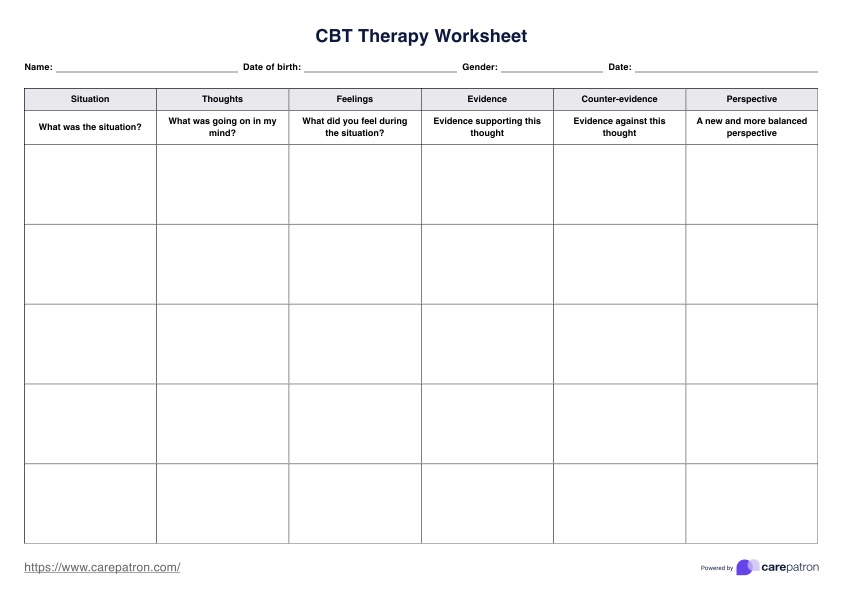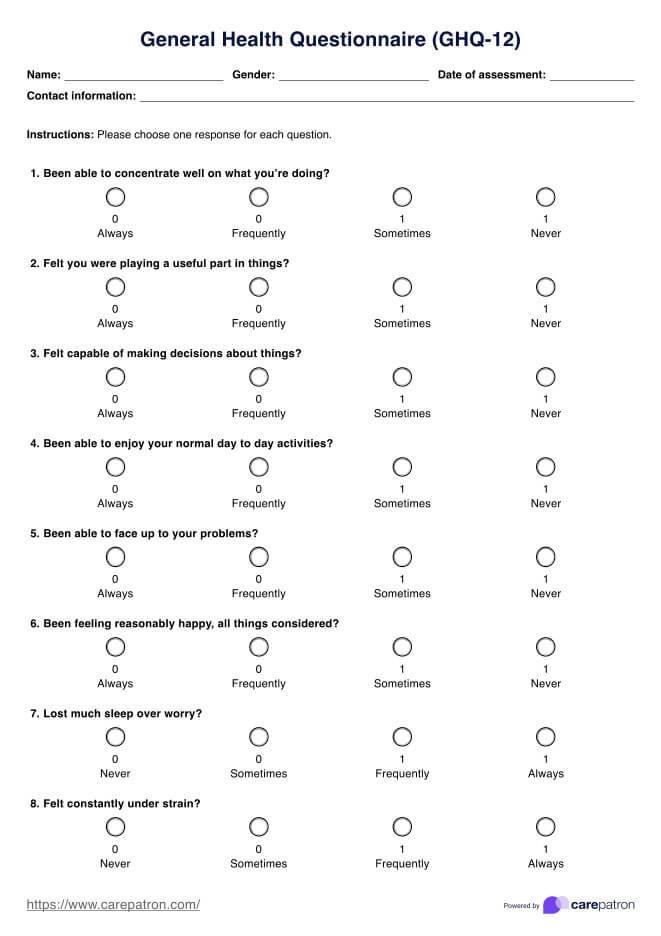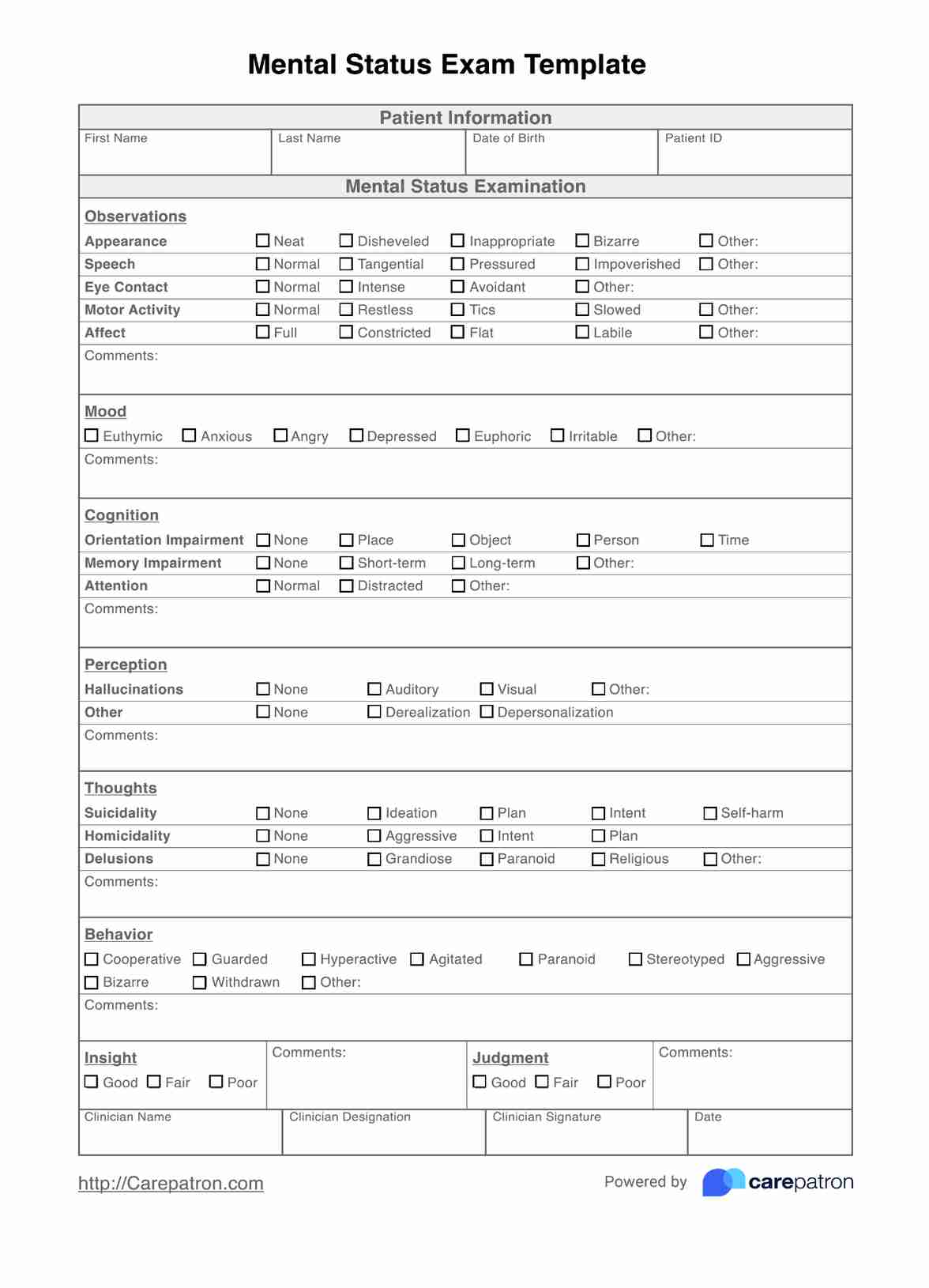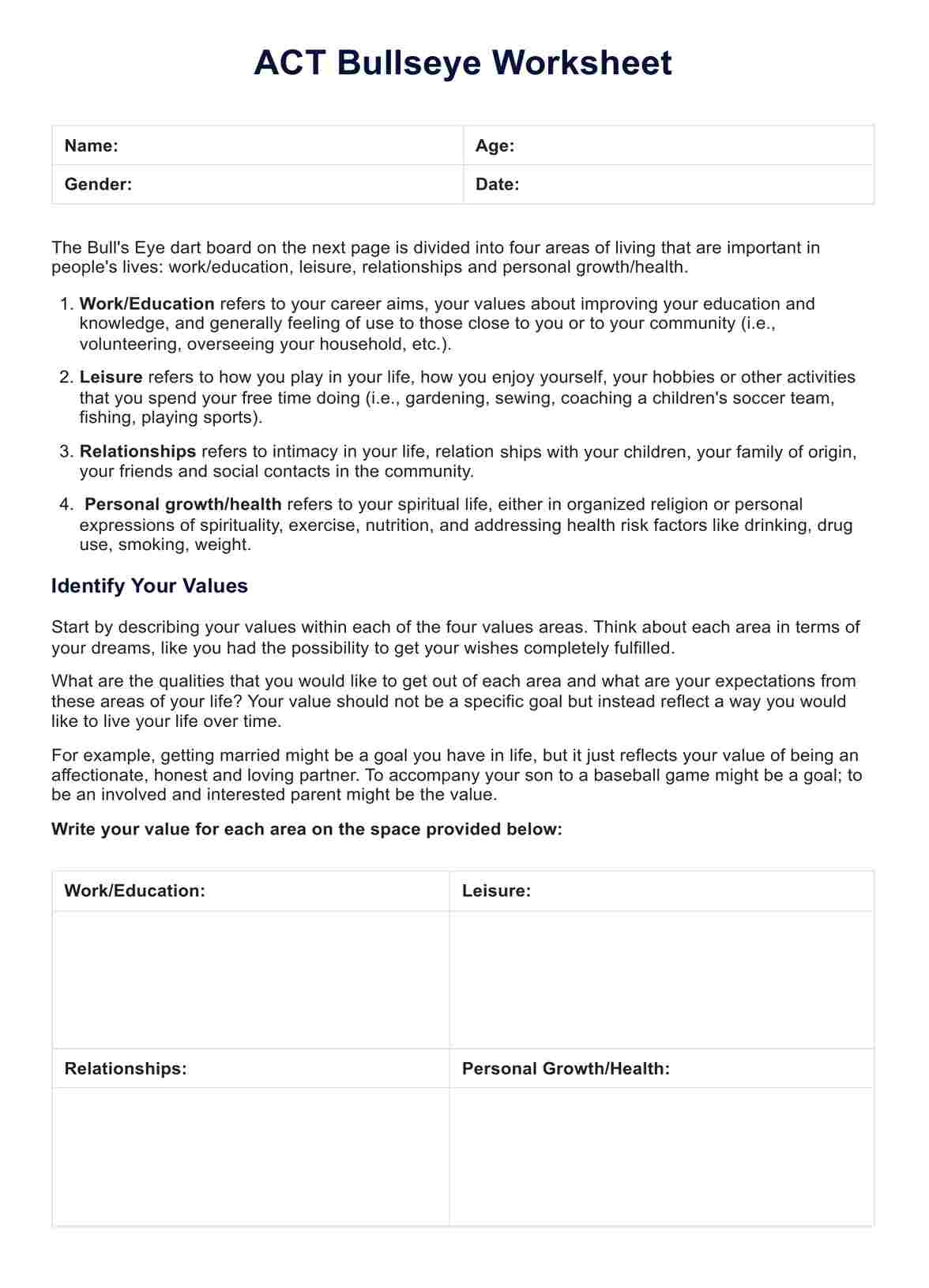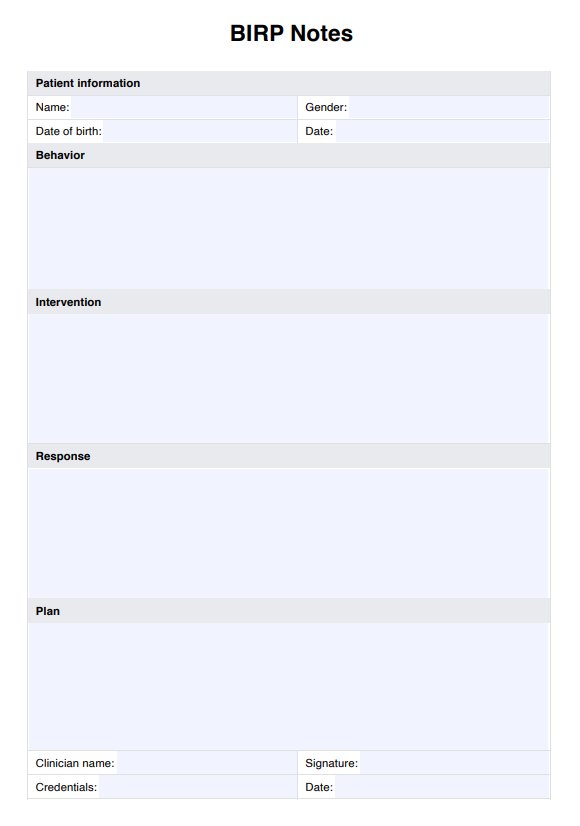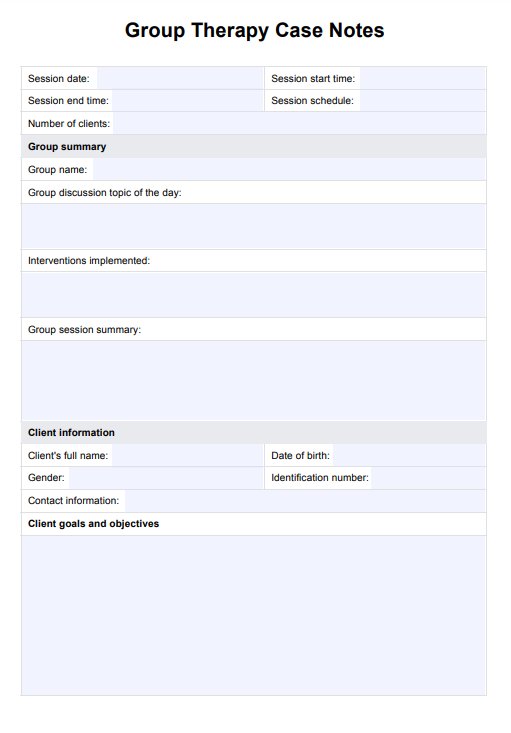Self-Esteem Scales
Looking for a State Self-Esteem Scale? Download our free PDF and learn more about how to measure self-esteem using this scale.


What is state self-esteem?
Self-esteem isn't always a constant feeling. While we may have a generally positive or negative self-image (trait self-esteem), our sense of self-worth can also change depending on the situation. This temporary evaluation of our capabilities and value in a specific moment is known as state self-esteem.
These fluctuations are normal and influenced by various factors, including:
- Recent experiences: Successes, failures, and positive or negative feedback can all impact how a person sees oneself in that moment.
- Social interactions: Feeling accepted and supported by others can boost one's state self-esteem, while rejection or criticism can have the opposite effect.
- Stress levels: When stressed, a person might tend to be more critical of oneself, leading to a temporary dip in state self-esteem.
It is important to note that state self-esteem can significantly affect an individual's thoughts, emotions, and behaviors. Individuals with high state self-esteem in a particular situation may be more likely to approach challenges with confidence and resilience, while those with low state self-esteem may experience increased anxiety, self-doubt, and avoidance behaviors (Leary & Baumeister, 2000).
Self-Esteem Scales Template
Self-Esteem Scales Example
What is the State Self-Esteem Scale?
The State Self-Esteem Scale (SSES) is a widely used and validated instrument designed to measure an individual's momentary or situational self-esteem (Heatherton & Polivy, 1991). Unlike trait or global self-esteem, which reflects a more stable and enduring sense of self-worth, the SSES is used for measuring state self esteem.
The SSES consists of 20 items that assess three components of state self-esteem: performance self-esteem, social self-esteem, and appearance self-esteem. Participants rate their agreement with statements such as "I feel confident about my abilities" (performance self-esteem), "I am worried about whether I am regarded as a success or failure" (social self-esteem), and "I feel satisfied with the way my body looks right now" (appearance self-esteem) using a 5-point Likert scale ranging from 1 (not at all) to 5 (extremely).
The SSES has demonstrated strong psychometric properties, including evidence for high internal consistency, test-retest reliability, and construct validity (Heatherton & Polivy, 1991; Heatherton & Wyland, 2003). It has been widely used in research studies across various domains, such as education, sports, and mental health, to investigate the role of state self-esteem in various outcomes, including performance, motivation, and well-being.
How does it work?
Our free State Self-Esteem Scale template is a key resource for measuring self-esteem, allowing you to easily and quickly assess your client's level of self-esteem in just 20 items. Here's how to use the template:
Step 1: Access the scale
Get a copy of the printable State Self-Esteem Scale using the link on this page. You can also access it from the Carepatron app or our resources library.
Step 2: Introduce to the client
Discuss the scale with your client and explain what it is and how to use it. Be sure to emphasize that there are no right or wrong answers and that their responses should be honest.
Step 3: Administer the scale
Give your client enough time to complete the scale. Encourage them to answer all the questions as accurately and thoughtfully as possible.
Step 4: Score and interpret
Once your client has finished answering all the questions, it's time to score the scale. Add up their responses for each category and assign a numerical score based on their answers.
Interpret the self-esteem score. A higher score typically indicates high or positive self-esteem, which is crucial in evaluating an individual's self-perception. However, it's important to remember that scores vary widely based on individual contexts and circumstances.
Step 5: Discuss the results
Discuss the results with your client. Encourage them to talk about their feelings and experiences around self-esteem and how their score relates to those. This is an excellent opportunity to work together on deeper aspects of self-esteem.
References
Heatherton, T. F., & Polivy, J. (1991). Development and validation of a scale for measuring state self-esteem. Journal of Personality and Social Psychology, 60(6), 895–910. https://doi.org/10.1037/0022-3514.60.6.895
Heatherton, T. F., & Wyland, C. L. (2003). Assessing self-esteem. In S. J. Lopez & C. R. Snyder (Eds.), Positive psychological assessment: A handbook of models and measures (pp. 219–233). American Psychological Association. https://doi.org/10.1037/10612-014
Leary, M. R., & Baumeister, R. F. (2000). The nature and function of self-esteem: Sociometer theory. In M. P. Zanna (Ed.), Advances in experimental social psychology, Vol. 32, pp. 1–62). Academic Press. https://doi.org/10.1016/S0065-2601(00)80003-9
Commonly asked questions
The State Self-Esteem Scale (SSES) is a 20-item self-report measure of state self-esteem, which is defined as a person’s momentary evaluation of their worth as a person. To use the SSES, respondents are asked to rate how they feel about themselves at the moment on a 5-point scale, ranging from 1 (not at all) to 5 (extremely). The scale consists of three subscales: performance, social, and appearance state self-esteem.
The State Self-Esteem Scale (SSES) has been shown to have good reliability and validity. The scale has high internal consistency, with Cronbach’s alpha coefficients ranging from 0.85 to 0.91. Additionally, the SSES has good test-retest reliability, with correlations between test and retest scores ranging from 0.70 to 0.80. This means that the scale is relatively stable over time and measures the same construct consistently.
Trait self-esteem refers to an individual’s enduring sense of self-worth, while state self-esteem is a momentary evaluation of one’s worth. State self-esteem can fluctuate over time and is influenced by situational factors, whereas trait self-esteem is a more stable construct.


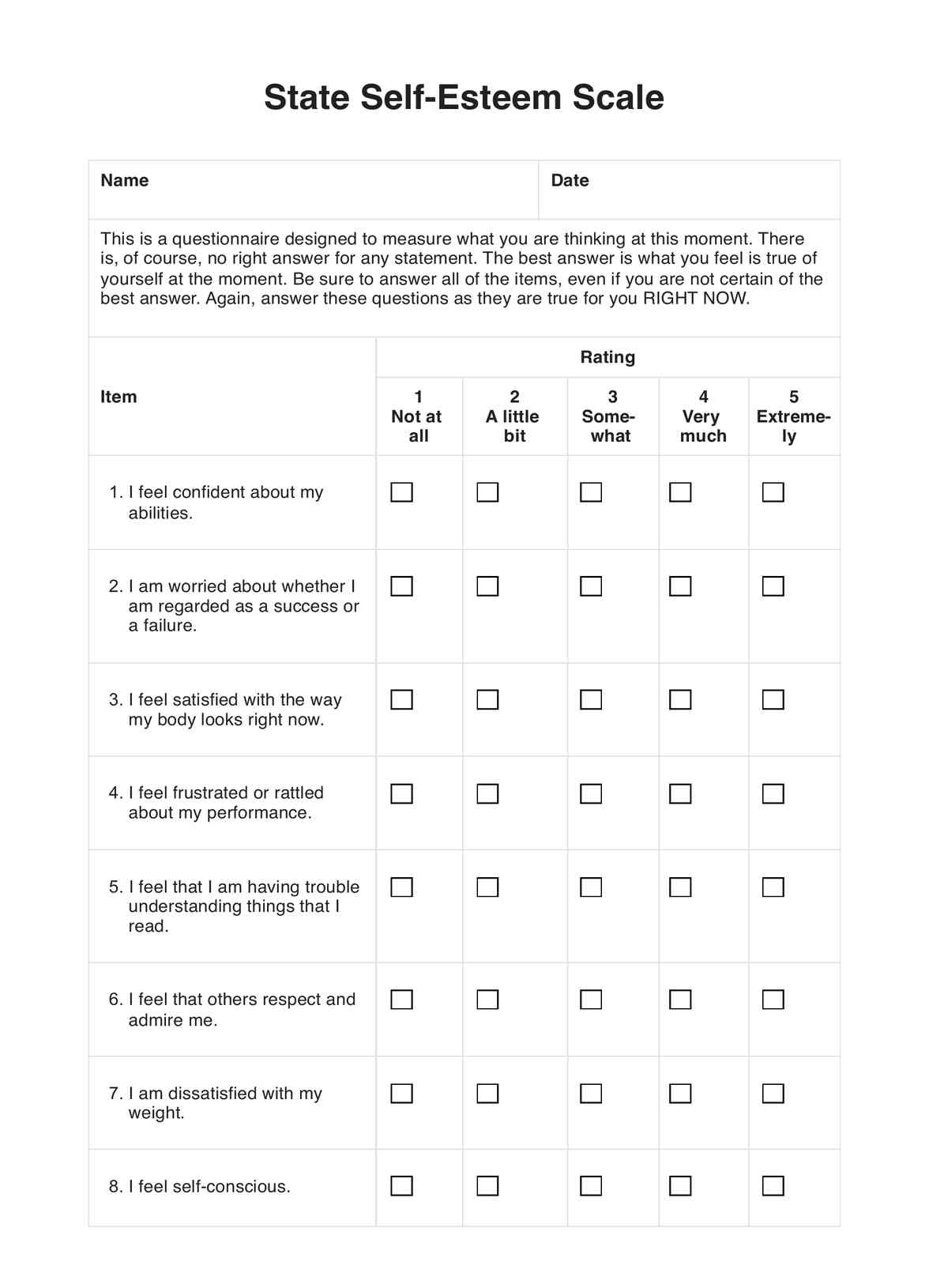
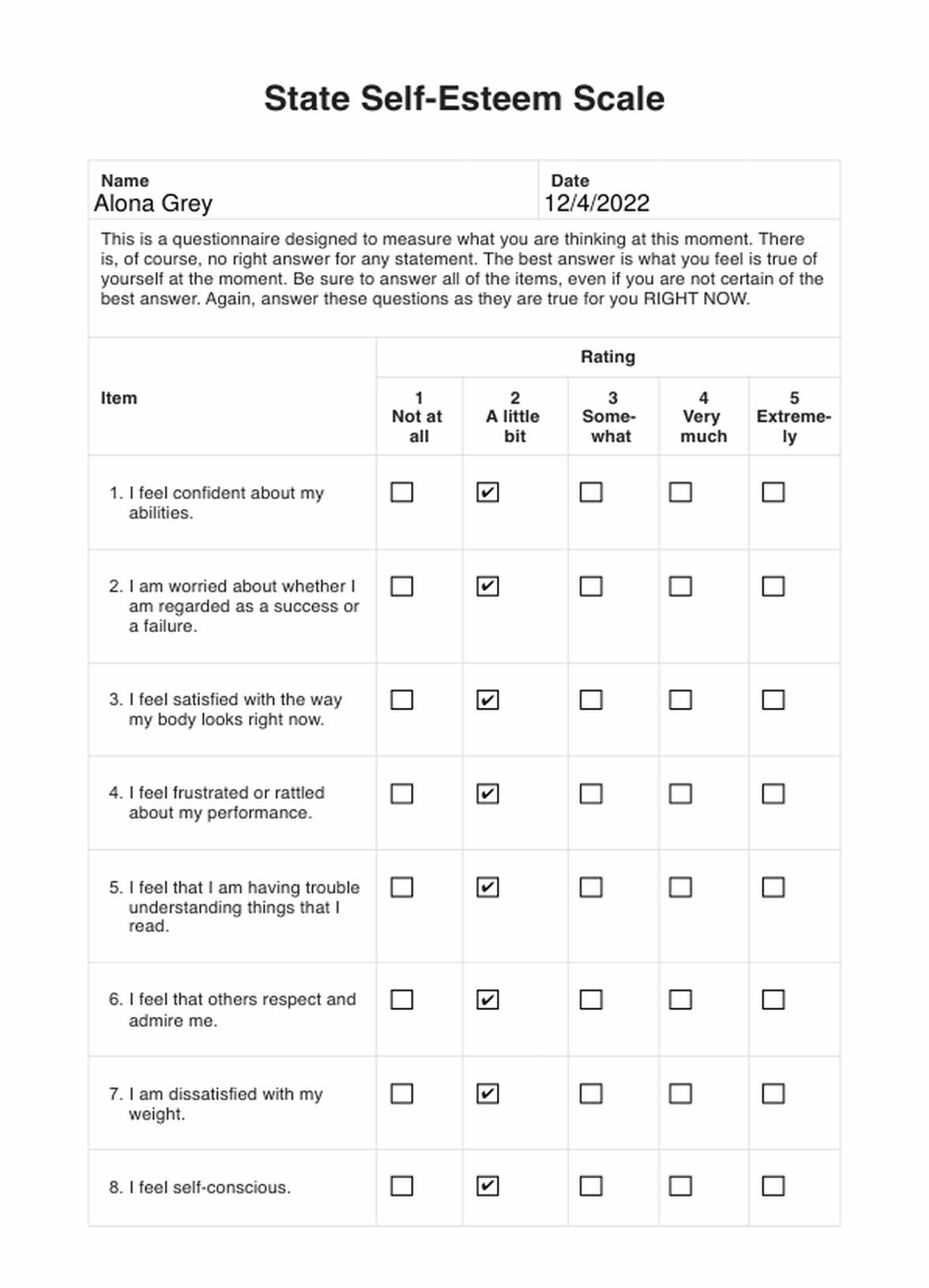

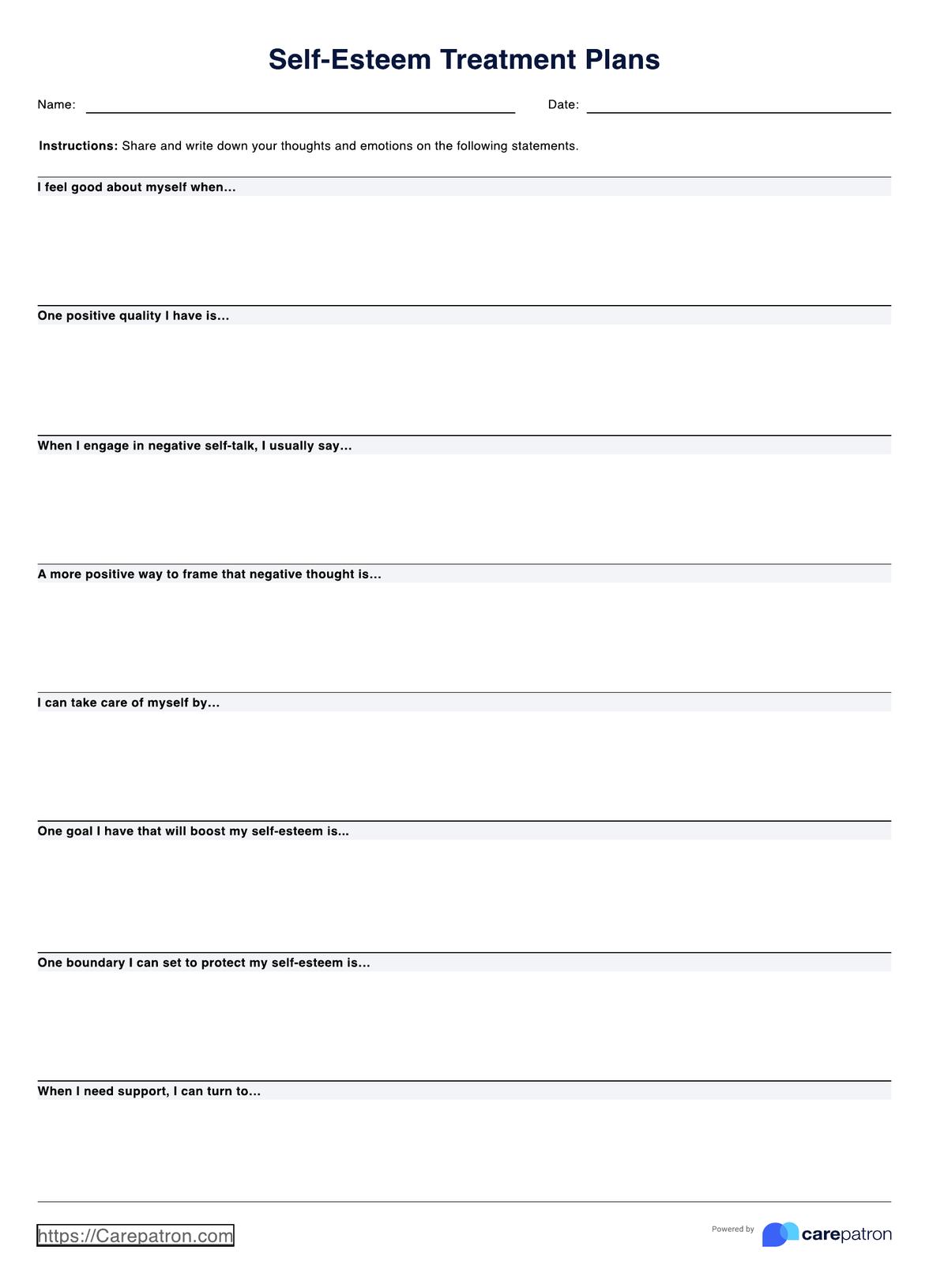
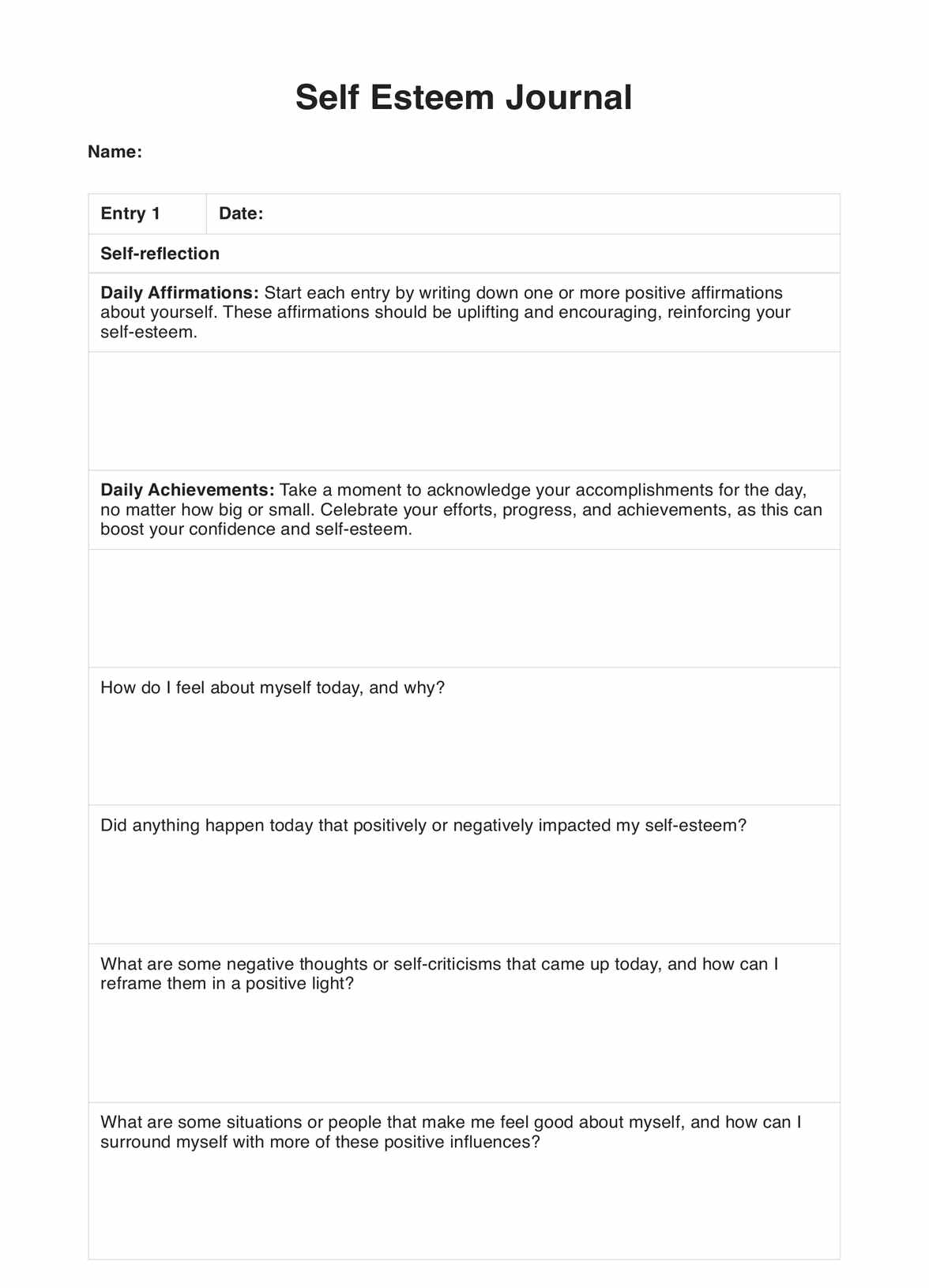
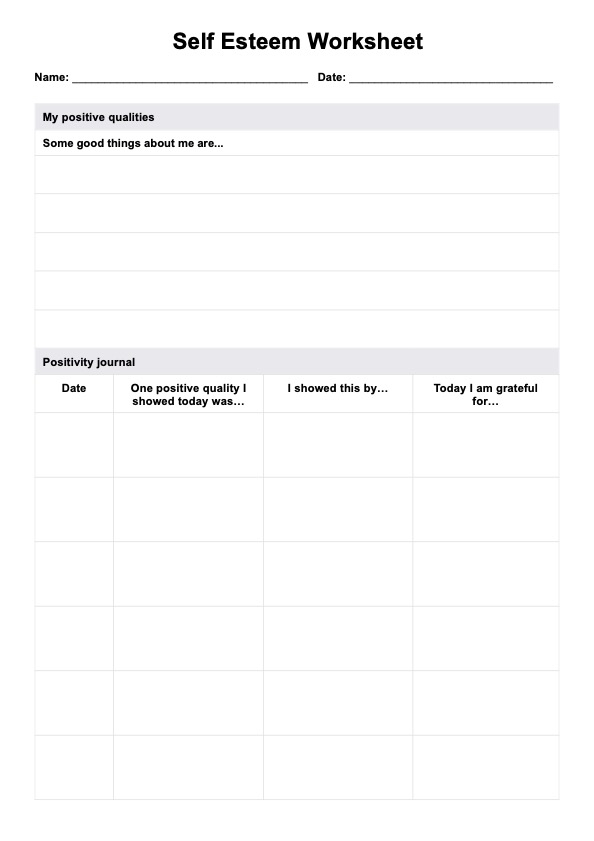
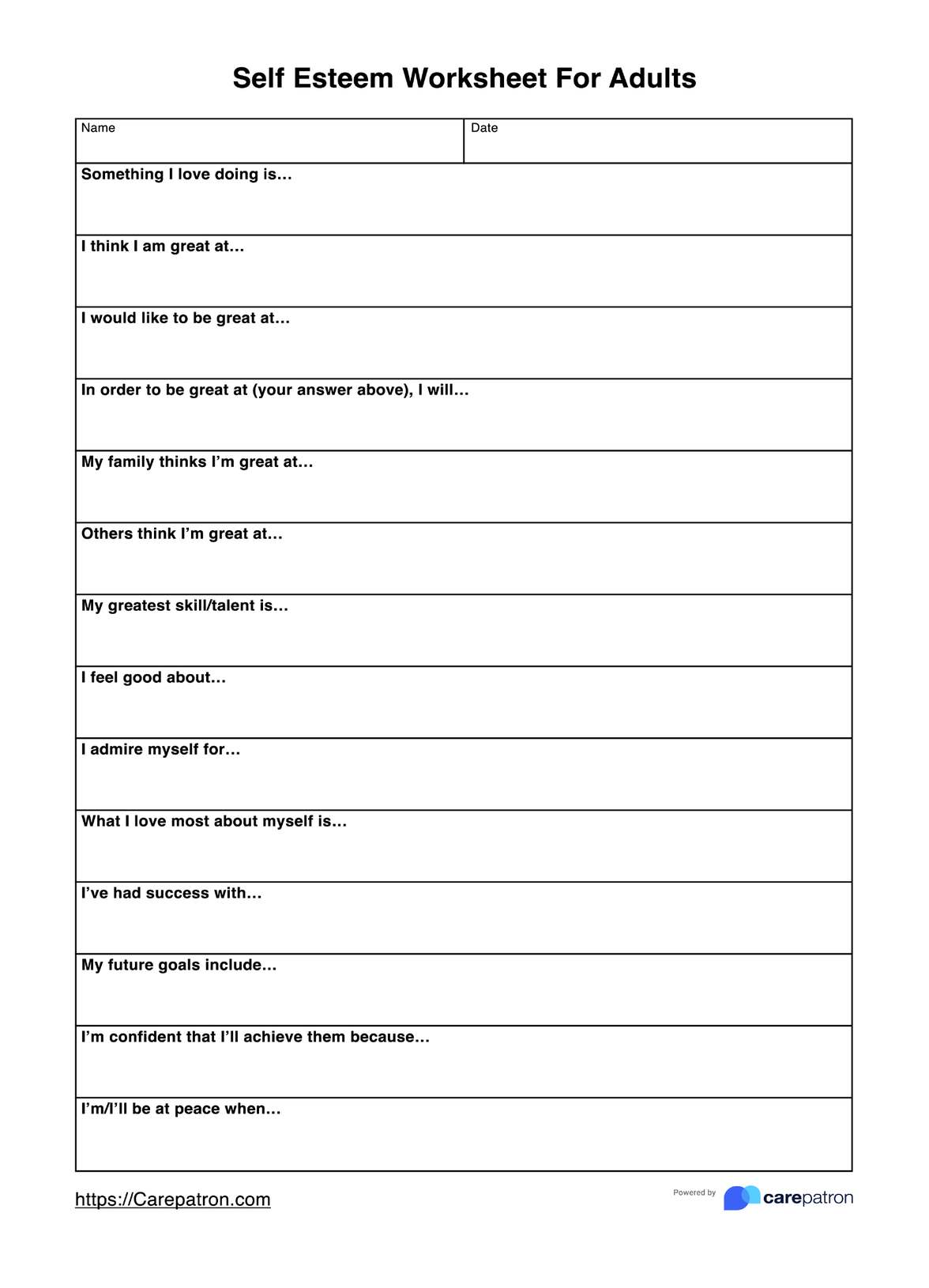
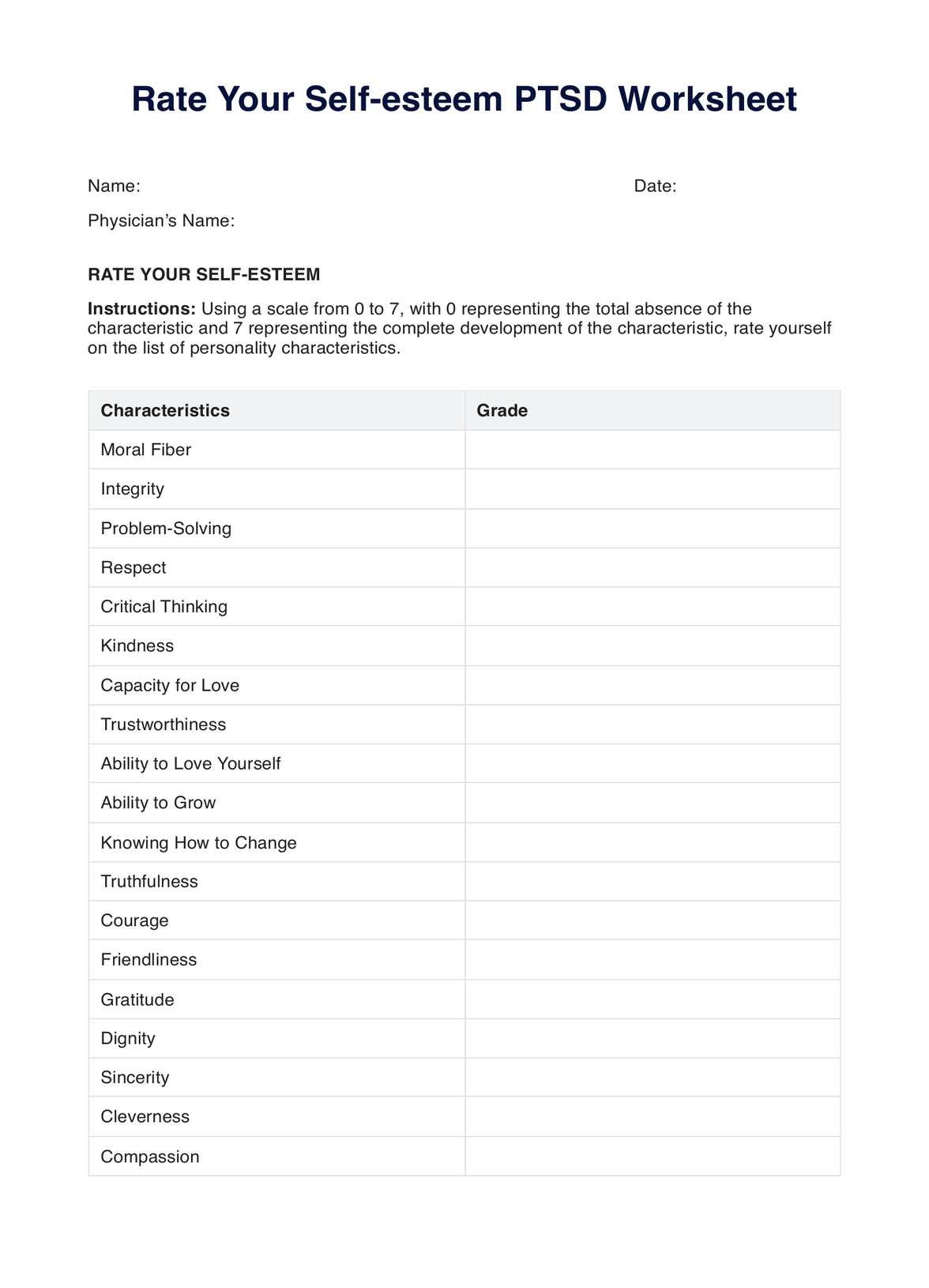















-template.jpg)




















































































